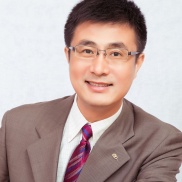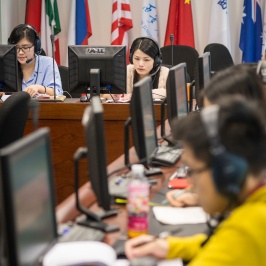- Introduction to multilingualism
- Multilingualism in society
- The politics of language in a globalized world
- Multilingual education and multilingual literacies

Global multilingualism has only increased with the growth of communications technologies, travel, and international trade. This cross-disciplinary programme will equip you with the knowledge and skills to understand multilingualism across the world, gain critical awareness of the issues surrounding language development, enhance intercultural communication abilities, and strengthen cooperation and collaboration among a wide range of diverse, international communities.
By the time you graduate from the Master of Applied Linguistics with a specialisation in multilingualism, you will have obtained the following:

The university offers a broad range of activities aiming to enrich master students’ theoretical and experiential learning and professional development. Trainings, workshops and seminars, covering varieties of themes and topics, both generic and subject-specific, are often offered at both university and school/department levels. You may also be provided with opportunities to work as a teaching assistant, research assistant, or intern at XJTLU. The School of Humanities and Social Sciences as well as the Department of International Studies often invite scholars and professionals for featured lectures. Such activities will not only support you in your programme study, but also develop your personal and professional skills and enhance your overall employability.
This programme prepares students for careers in the following sectors: government organisations, media and journalism, business, public relations, editing, teaching, and administration. In addition, the programme is a stepping stone for those who want to undertake a research degree in applied linguistics generally, and multilingualism in particular.

